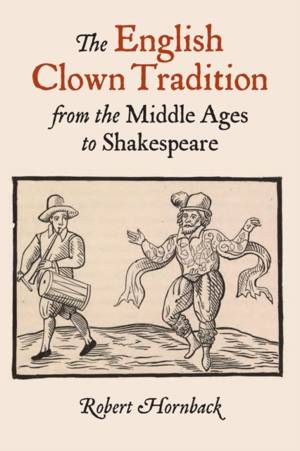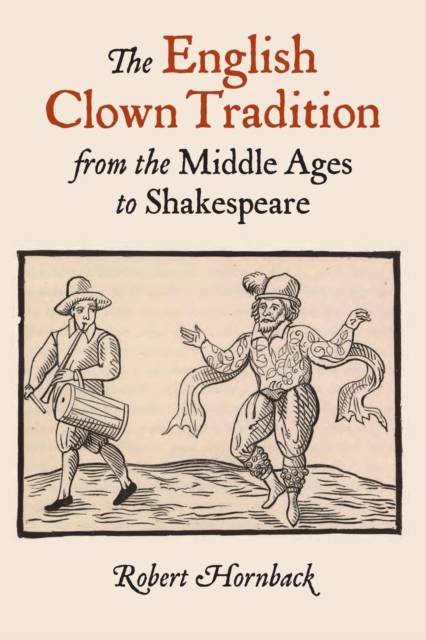
Bedankt voor het vertrouwen het afgelopen jaar! Om jou te bedanken bieden we GRATIS verzending (in België) aan op alles gedurende de hele maand januari.
- Afhalen na 1 uur in een winkel met voorraad
- In januari gratis thuislevering in België
- Ruim aanbod met 7 miljoen producten
Bedankt voor het vertrouwen het afgelopen jaar! Om jou te bedanken bieden we GRATIS verzending (in België) aan op alles gedurende de hele maand januari.
- Afhalen na 1 uur in een winkel met voorraad
- In januari gratis thuislevering in België
- Ruim aanbod met 7 miljoen producten
Zoeken
The English Clown Tradition from the Middle Ages to Shakespeare
Robert Hornback
€ 59,95
+ 119 punten
Uitvoering
Omschrijving
English theatrical clowns carried a weighty cultural significance from the late medieval period through to the seventeenth century, only to have it stripped from them, sometimes violently, at the close of the Renaissance, when the `license' of fooling was revoked. This survey of clown traditions during the period looks at their history and reveals their hidden cultural contexts and legacies. It has far-reaching implications not only for a general understanding of English clown types, but also for understanding their considerable role in defining social, religious and racial boundaries. The study begins with an exploration of previously misconstrued early representations of blackness in medieval psalters, cycle plays, and Tudor interludes, arguing that such depictions are more emblematic of folly and ignorance than of evil. Other elements of the clown tradition examined here include the patronage of a clownish, iconoclastic Lord of Misrule by Protestants at Cambridge and at court during the reigns of Henry VIII and Edward; the Puritan clown of the Elizabethan stage; and the Fool in King Lear, about whom fresh and provocative conclusions are reached. The epilogue focuses on the satirical clowning which took place surreptitiously in the Interregnum, and the causes and manner of the revoking of `licensed' foolery.
Specificaties
Betrokkenen
- Auteur(s):
- Uitgeverij:
Inhoud
- Aantal bladzijden:
- 256
- Taal:
- Engels
- Reeks:
- Reeksnummer:
- nr. 26
Eigenschappen
- Productcode (EAN):
- 9781843843566
- Verschijningsdatum:
- 18/07/2013
- Uitvoering:
- Paperback
- Formaat:
- Trade paperback (VS)
- Afmetingen:
- 156 mm x 234 mm
- Gewicht:
- 367 g

Alleen bij Standaard Boekhandel
+ 119 punten op je klantenkaart van Standaard Boekhandel
Beoordelingen
We publiceren alleen reviews die voldoen aan de voorwaarden voor reviews. Bekijk onze voorwaarden voor reviews.









